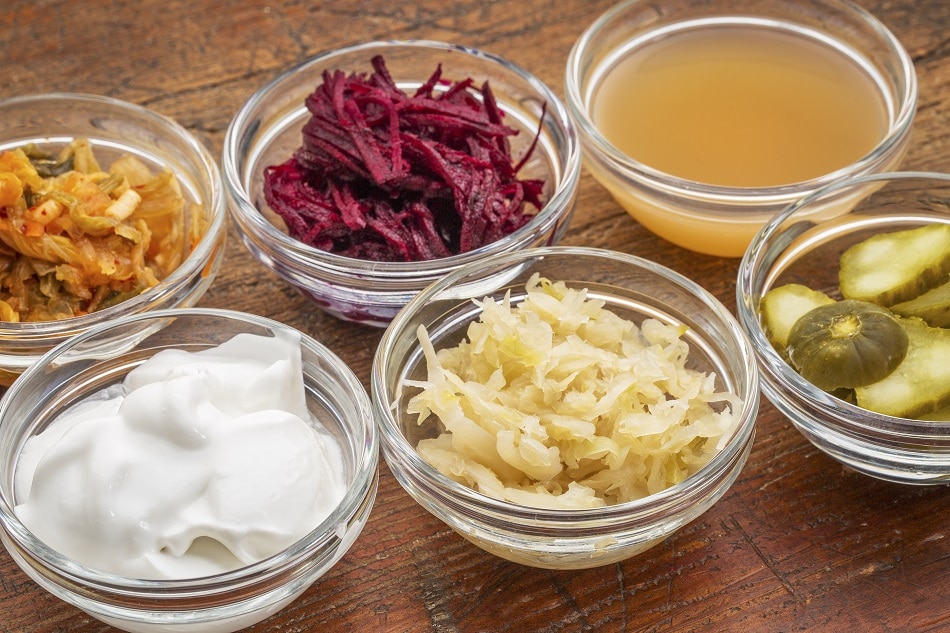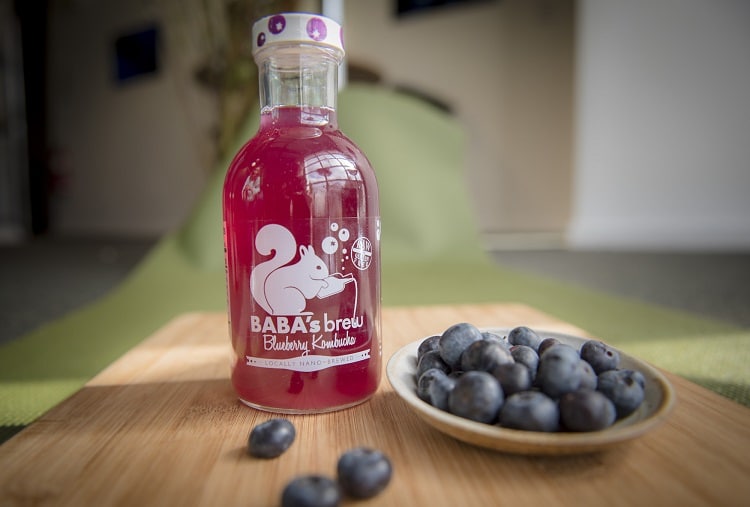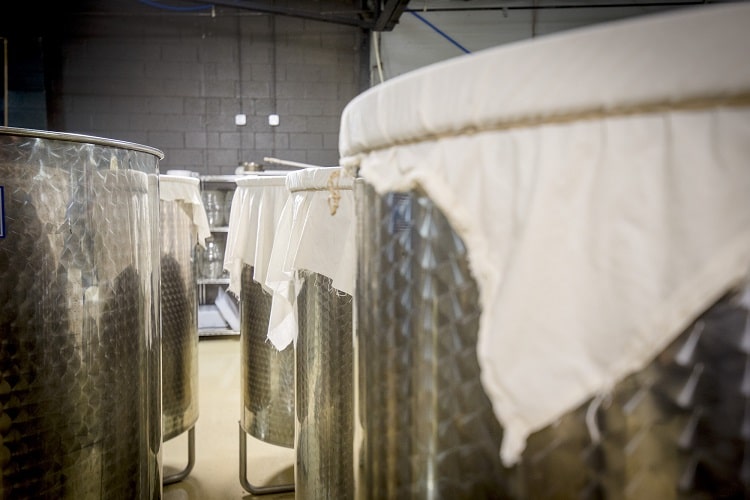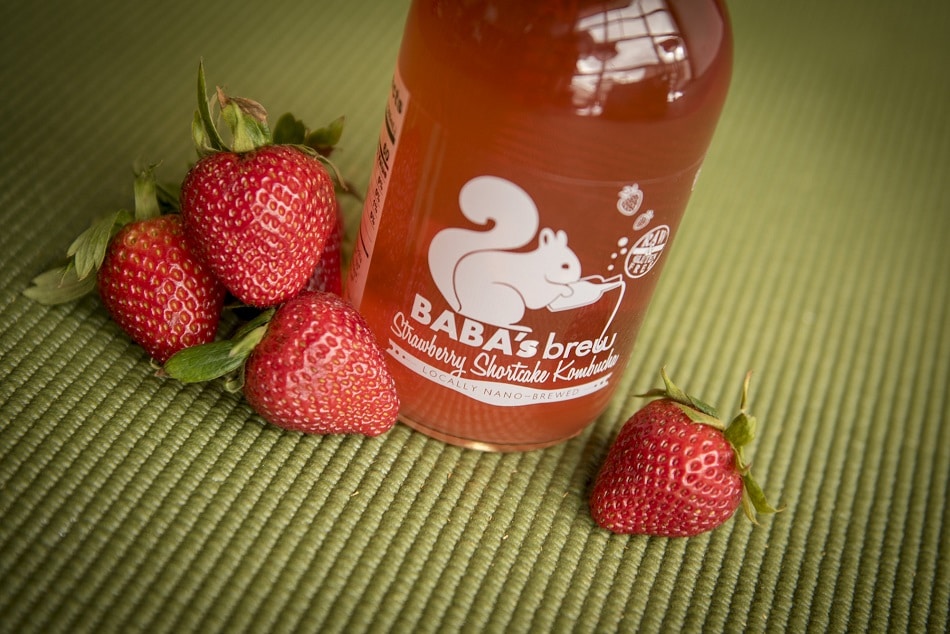“Probiotic” is a big buzzword in the health and wellness world these days. Probiotics are microscopic live bacteria and yeasts, and they’re the “good” kind: good for your health, especially the digestive system. We’re all looking for that good gut health, right?
When you lose “good” bacteria from your body, for example, when you take antibiotics, probiotics can help replace them. Probiotics can also help balance your “good” and “bad” bacteria to keep your body working the way it should. Probiotics are most often found in some of our favorite foods and drinks, like yogurt, kimchi and sauerkraut, miso, tempeh and, of course, kombucha.

While you can easily purchase and take probiotic pills, you may want to stick to the foods and drinks we mentioned above, which are more regulated — and more potent — than a pill.
Probiotic pills do have nutritional value, but what you see on the label may not be what you get. According to two researchers at Bastyr University in Washington, they found that after testing a wide variety of probiotic supplements, a whopping four out of 20 products had no sign of living, friendly bacteria.
The sad truth is that too many supplements vary in quality and potency and actually can’t survive harsh stomach acid in order to get to your intestines. Fermented foods and drinks are viable in your system from the time they touch your lips all the way down into your gut. Lab-produced probiotics are also often only a single strain of bacteria, like Lactobacillus acidophilus, while fermented foods and drinks can have many different strains of live cultures supplied by nature.
So, after considering all of this, fermented foods and drinks may be your best solution to often-ineffective probiotic supplements. Here are the top reasons that we love to eat and drink our probiotics:
Probiotics, Alive & Well
Whether you purchase fermented foods and drinks or make them at home, you are ingesting active bacteria. And, if you are purchasing them, check the label and make sure it states the food “contains live, active cultures.” Some labels may even list out the cultures; Bifidobacterium, Lactobacillus, Lactococcus and Leuconostoc are some of the strains to look for. We recommend you choose foods with other good-for-you nutrients in addition to the probiotics, like yogurt, which also contains filling protein and calcium.
Whole-Body Wellness

Another great introductory food to the fermentation world is kombucha, which contains those live, active probiotic cultures we love, and also offers tremendous health benefits for your entire body, especially your gut. Not only does kombucha aid in digestion, it also fights the harmful yeast in your system, it can help provide mental clarity and can also help stabilize your mood. And the fizziness and flavor profiles for kombucha are endless! Plus, people have been enjoying this fermented tea for thousands of years.
Among other things, probiotics help send food through your gut by triggering nerves that control gut movement. Researchers are still trying to figure out which probiotics are best for certain health problems: Some common conditions they treat are irritable bowel syndrome and inflammatory bowel disease.
There is also some research that shows probiotics are useful for problems in other parts of your body. For example, some people say probiotics have helped with skin conditions, like eczema, urinary and oral health. Emily Scott, digital marketing coordinator at Kimberton Whole Foods, completely agrees. She says, “Probiotics can be a great addition to a healthful diet and lifestyle. In my experience, a balanced and well-functioning gut can lead to improvements in immune response, skin health and more. For this reason, incorporating probiotics or probiotic-rich foods into your diet may be worth a try if you’re suffering from symptoms that you’re having trouble finding a solution to.”
A Bounty of Benefits
Packed with B vitamins, minerals and enzymes, fermented foods and drinks are whole foods full of nutritional value in their own right. Fermented foods are pre-digested by bacteria and yeast so that your gut can easily break down and absorb nutrients. It’s all about what happens in the fermentation process — and also what doesn’t happen. For example, fermentation doesn’t use heat, which means your foods and drinks retain vital amino acids that can be destroyed by heat.

Very Versatile
Taking a pill may seem easier than adding a bunch of fermented goodies to your day, but a great benefit to consuming your probiotics is that you can use them throughout your cooking. For instance, add foods like kimchi, which can be spicy-hot, as a new side or topping. If kimchi is too spicy, try its cousin sauerkraut, which adds more zing than spice. Sauerkraut is the perfect addition to a grilled cheese sandwich or pork chops. You can also experiment with miso, a fermented soybean paste, in soup or blended into a sauce or salad dressing.
You are what you digest, right? And living probiotics are vital to a healthy gut and overall health. We suggest giving fermented foods and drinks a go in your daily routine. Try drinking just one kombucha from BABA’s Brew daily to start seeing and feeling the positive effects of fermented foods. (Our personal favorite: Baba’s Strawberry Shortcake Kombucha flavor, which is loaded with organic strawberries and a hint of rose hips.)

Don’t be afraid to try new things. Fermented foods are fun and they’re a great way to eat and drink your probiotics!
How do you incorporate probiotics into your diet?
Find BABA’s Brew at a number of local retailers or at A Culture Factory, located at 333 Morgan St. in Phoenixville; (267) 738-1973.
- Food photo: Bigstock
- All other photos: Ed Williams for BABA's Brew




